SPEAKERS

Dr. Sammy Ramsey
CU Boulder’s BioFrontiers Institute and the Ecology and Evolutionary Biology Department
Tues. Nov 14th at 2:30 PM — Pollinator Pandemic: Updates on the Efforts to Track and Manage Tropi Mites
Dr. Ramsey received his B.S. in entomology from Cornell University and his Ph.D. in entomology from the University of Maryland College Park. He completed his post-doctoral training with Dr. Jay Evans, Steve Cook, and Daniel Sonenshine at USDA-ARS Bee Research Laboratory and now serves as Endowed Professor of Entomology at CU Boulder’s BioFrontiers Institute and the Ecology and Evolutionary Biology Department. Featured on Hulu’s Docuseries: Your Attention Please as well as in the Washington Post, on NPR, CNN, Wired, CBS This Morning, Khan Academy, Seeker, The Today Show and several local news segments, Ramsey is celebrated as an engaging science communicator. He uses this talent to make science more accessible to a broad audience. His nonprofit, The Ramsey Research Foundation, works to remove barriers that slow the progress of and decrease access to science by developing novel pathways for scientific funding and by removing paywalls that keep the public from engaging with published scientific work.
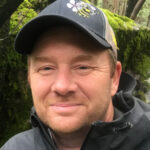
Chris Hiatt
American Honey Producers President
Tues. Nov 14th at 1:15 PM — American Honey Producers Update
Chris was born into a beekeeping family in Ephrata, Washington in 1975. He and his five brothers grew up spending springs managing apple pollination in central Washington and summers pulling and extracting honey in North Dakota. Together they now own Hiatt Honey Co., started by their father 50 years ago. Chris splits his work year between Madera, California and Bowman, North Dakota running 20,000 hives. He also manages the business’s almond orchard in Madera.

Randy Oliver
Tues. Nov. 14th at 3:30 PM — Randy’s Recent Research
Wed. Nov. 15th at 2 PM — Varroa Control with Natural Substances
Randy Oliver sees beekeeping through the eyes of a biologist, building a small commercial beekeeping enterprise in the foothills of Northern California. His sons now manage around 1500 colonies for migratory pollination, and produce queens, nucs, and honey, freeing Randy to engage full-time in beekeeper-funded research projects. Randy analyzes and digests the scientific research, and is in touch with beekeepers and researchers from all over the world, in order to not only broaden his own depth of knowledge, but to figure out best management practices for beekeepers everywhere, which he then happily shares through his various articles in bee magazines, his speaking engagements, and on his website: www.ScientificBeekeeping.com
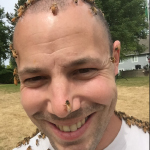
Brandon Hopkins
Washington State University
Wed. Nov. 15th at 9 AM — Large scale field testing of a novel nutritional supplement
Dr. Brandon Hopkins is an Assistant Research Professor at Washington State University in the Department of Entomology. Initially working on the development of cryopreservation of honey bee germplasm for breeding and conservation, work that enabled the establishment of the world’s first honey bee germplasm repository at WSU and inclusion of honey bee semen in the USDA National Animal Germplasm Program. His research efforts have been focused on developing practical solutions for the beekeeping industry ranging from bee breeding to varroa control.
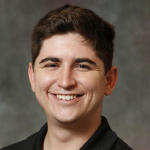
Brandon Shannon
Ohio State University
Wed. Nov. 15th at 9:45 AM — Using Adjuvants to Improve Efficacy of Varroa Control Active Ingredients in Honey Bee Colonies
My name is Brandon Shannon, and I am a PhD student, graduate research associate, and teaching assistant at The Ohio State University. I have been beekeeping since 2017 during my undergraduate degree in chemistry at the University of Central Florida (UCF). My master’s research determined toxicities of adjuvants (formulations of “inert ingredients” added to improve pesticide tank mixes) commonly used in California almond orchards to honey bees. In addition to expanding research on toxicity of agrochemicals to honey bees, my PhD projects focus on using bee-safe adjuvants to improve varroa control in honey bee colonies. After completing my PhD, I plan to further my career in academia through honey bee research, teaching, and extension.
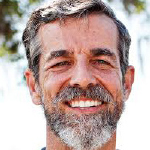
Jerry Hayes
Bee Culture Magazine
Wed. Nov. 15th at 3 PM
Jerry Hayes started out in life as a High School teacher. He hated it. He went into another business where he worked with a beekeeper. Jerry asked him questions, picked his brain, became more interested and fascinated and started reading everything he could get his hands on about Honey Bees. He turned into the consummate backyard beekeeper. He did all the fun and crazy things backyard beekeepers do and built and experimented with. He wondered if he could get into the Beekeeping world and support a young family. So, with the support of his family he went back to school under the tutelage of Dr. Jim Tew, at Ohio State University. “Third Best thing he ever did”, Jerry said. Jerry was Research Technician at the USDA/ARS Baton Rouge Bee Lab, Dadant and Sons Regional Mgr., Dadant and Sons New Product Dev., and AR Mgr., Chief of the Apiary Section for the Florida Dept. of Agriculture and Consumer Services, Monsanto Honey Bee Health Lead, VP. of Vita Bee health North America and now Editor of Bee Culture magazine with awe and amazement. Add to the above the Classroom Q&A Column of the American Bee Journal for almost 40 years, the ‘Classroom’ Book, Author or Co-Author on 23 research papers and a variety of Honey Bee related articles in a variety of publications. Plus, Past President of Apiary Inspectors of America, Heartland Apiculture Assoc., Colony Collapse Working Group, CAPS Science Advisor, PAm Science Advisor, AHPA Science Advisor and many Professional Presentations internationally and media opportunities. And Now Editor of Bee culture magazine. It has been a Great Journey.
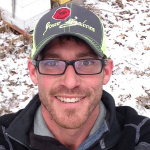
Zac Lamas
Bee Research Laboratory, Beltsville, MD
Thurs. Nov. 16th at 11:15 AM — Hidden In Plain Sight: Varroa Aggregate on Adult Drones
Zac is a postdoctoral researcher under Jay Evans at the Bee Research Laboratory in Beltsville, MD. He focuses on how Varroa feeding behavior drives viral transmission in a honey bee colony. His current work uncovered how varroa are actively feeding and switching from one adult bee to another, and that relatively few mites are responsible for a majority of parasitized bees. During his PhD he was the recipient of the PAm-Costco award where he studied the vectorial capacity of Varroa destructor. He actively speaks at bee clubs and professional conferences, largely sharing information on beekeeping management. Zac previously worked for Michael Palmer at French Hill Apiaries in Saint Albans, Vermont. On the side Zac is the owner and operator of RockStar Queens. He produces quality nucleus colonies and queens in central Maryland.

Anne Marie Fauvel
Bee Informed Partnership
Thurs. Nov 16th at 1:15 PM — Recent Research Update – BIP’s Greatest Hits of the Year; from Nutrition to Viruses and Nosema
Anne Marie Fauvel is the Technical Transfer Team Coordinator for Bee Informed Partnership. She oversees the logistics of the Tech Team services, including work with commercial beekeepers across the country, monitoring, sampling, reporting & consulting as well as conducting special trials/projects in real-world commercial beekeeping operations.
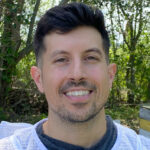
Vincent Ricigliano
USDA ARS
Thurs. Nov 16th at 2 PM — Developing Scalable and Sustainable Solutions to Honey Bee Pathogen Threats
Vincent Ricigliano is a research scientist at the USDA-ARS Honey Bee Breeding, Genetics, and Physiology Research Unit in Baton Rouge, Louisiana. His research spans nutrition, genetics, microbiology, and pathogens. The overarching goal of his research program is to develop sustainable solutions to malnutrition and pathogen threats that can be practically adopted by the beekeeping industry.
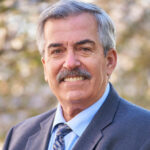
Mel Machado
Blue Diamond Growers, VP Member Relations
Thurs. Nov 16th at 2:45 PM — Almond Industry Update
Mel began his career at Blue Diamond in 1992, in the role of Field Supervisor serving member/growers in northern Stanislaus, and San Joaquin counties. Mel is now the Vice President of Member Relations and oversees a team of nine regional managers who serve as direct support to the 3,000 grower-members of the Blue Diamond grower cooperative. Mel serves as a member of the Board of Directors of the Almond Board of California, ABC, and as a member of the ABC’s Strategic Agricultural Innovations Committee. He also serves as a member of the University of California Integrated Pest Management Advisory Council.
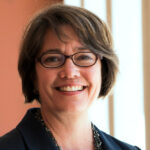
Josette Lewis
Almond Board of California, Chief Scientific Officer
Thurs. Nov 16th at 2:45 PM — Almond Industry Update
Dr. Lewis oversees research for the Almond Board of California. Prior to joining the Almond Board, she was Associate Vice President at the Environmental Defense Fund, where she focused on ecosystems and sustainable agriculture. She previously served as the Associate Director of the University of California, Davis World Food Center and worked in business development for Arcadia Biosciences. Dr. Lewis spent 16 years with the U.S. Agency for International Development, most recently as Director of the Office of Agriculture, where she played a leadership role in the development of the Administration’s global initiative on food security.
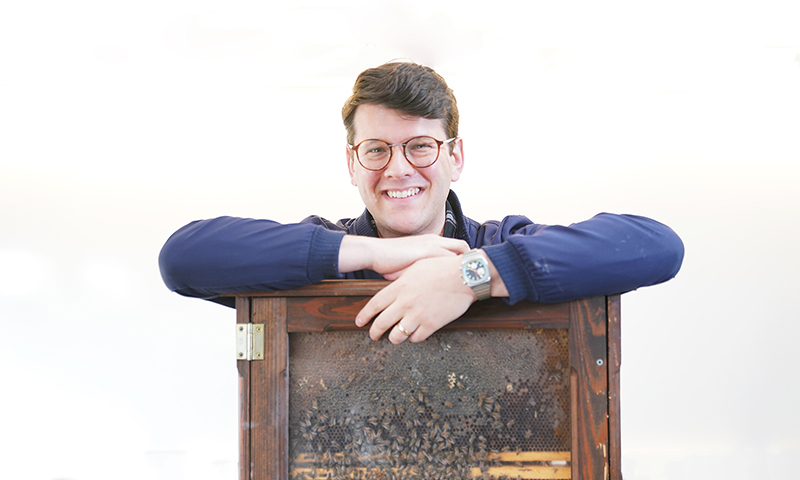
Brock Harpur
Assistant Professor, Entomology Department, Purdue
Wed. Nov 15th at 12:00 PM — Research Lunch Keynote Speaker: Bee Genetics in the 21st Century
Brock Harpur is an Assistant Professor in the Entomology Department of Purdue. Brock arrived at Purdue after completing a National Science and Engineering Research Council Postdoctoral Fellow at the Donnelley Centre, the University of Toronto with Ben Blencowe. His work explores the evolution and genetics of honey bees. Brock completed his Ph.D. on population genomics of honey bees at York University with Amro Zayed as an Elia Research Scholar. He's been a beekeeper for 15 years.
